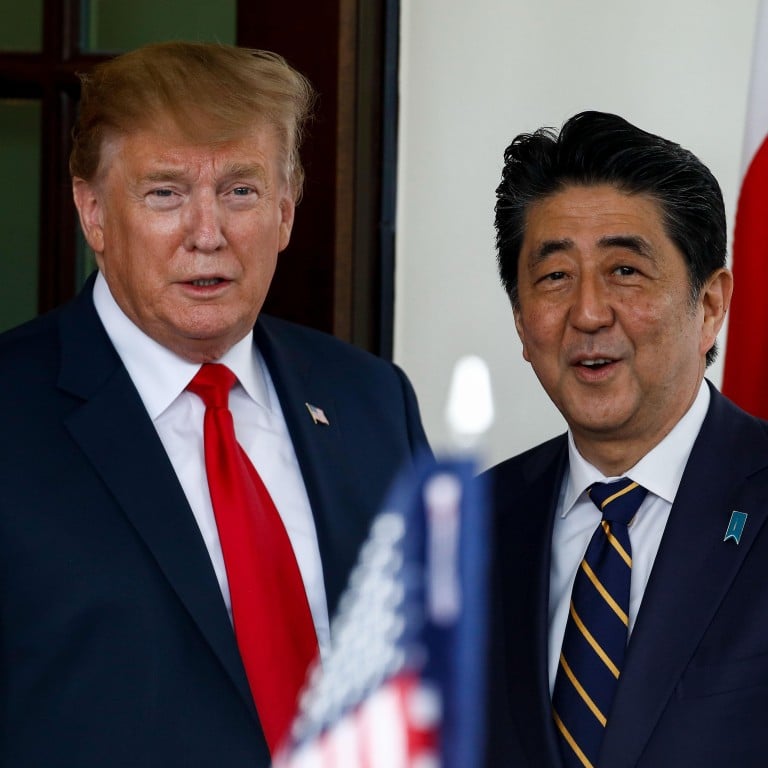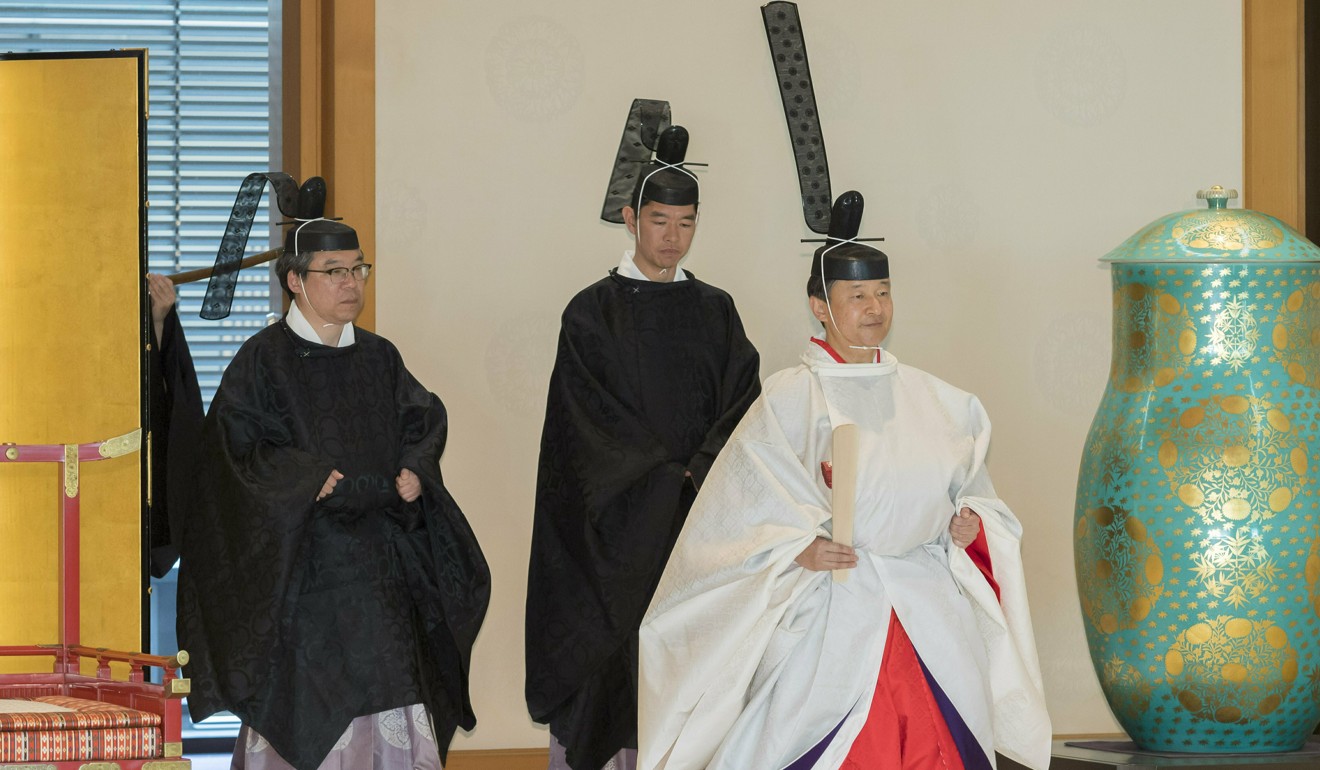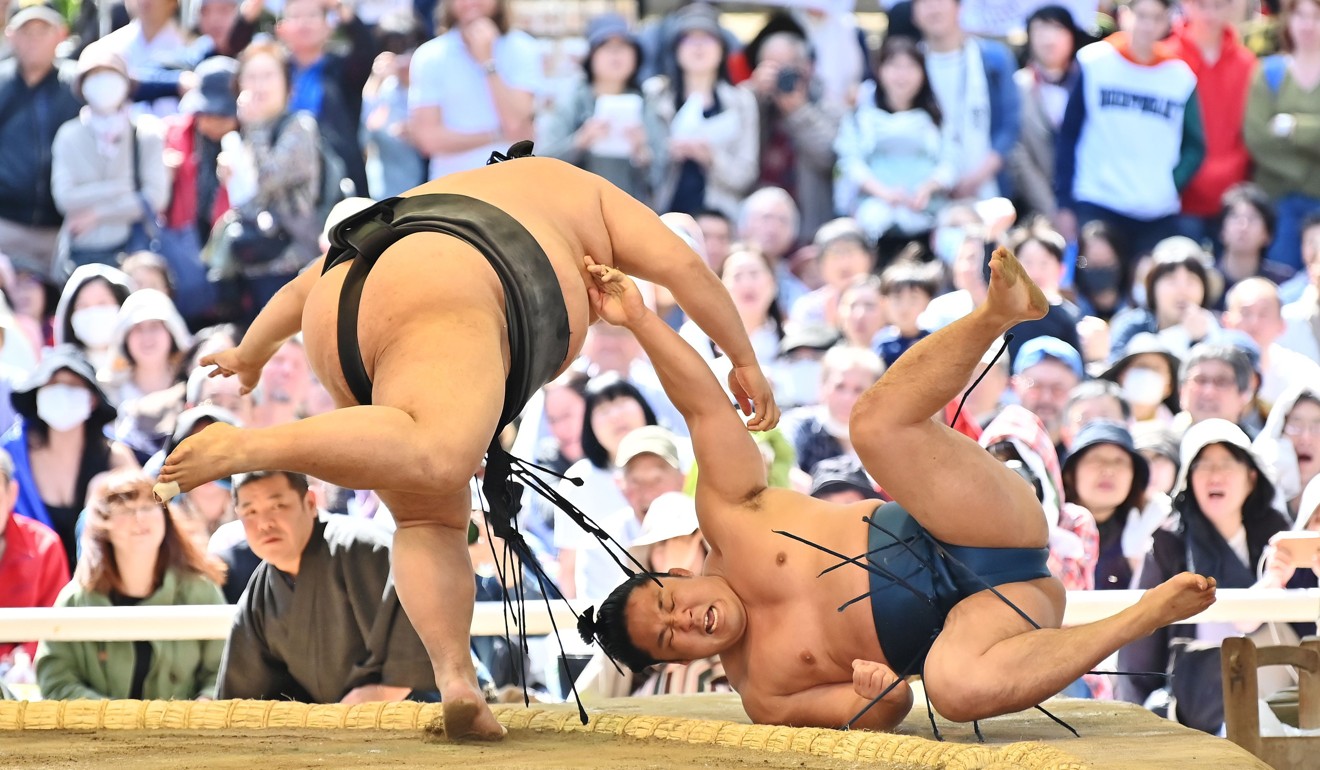
As Donald Trump and Shinzo Abe celebrate ties and sidestep trade dispute, Beijing will be watching closely
- Washington and Tokyo are not expected to issue a joint statement after the meeting, to avoid exposing differences in trade and Korean peninsula security issues
- Amid thawing ties between Japan and China, Beijing will be watching Tokyo’s overtures to its traditional ally Washington
The Japan Times, quoting government sources, last week said Trump and Abe were unlikely to issue a joint statement after their meeting. Instead, they would hold a press conference and showcase “the strong relationship of trust”.
Sources close to trade talks said Tokyo’s method was to avoid provoking Trump and instead present itself as the most friendly of Washington’s trade partners.
“Japan’s strategy is to proceed with negotiations in a cool-headed manner,” in contrast to the aggressive tit-for-tat tariff retaliations between the US and China, said Shujiro Urata, a trade expert and professor at Tokyo’s Waseda University.
Japan wants its leader called Abe Shinzo – surname first. Why the change?
Trump’s administration sees the pact as vital to reducing America’s trade deficit with Japan, which grew by 17.7 per cent in April compared to year ago.
But trade ministers from both sides are still at odds over tariff cuts – earlier this week, Tokyo said it would cut tariffs on US farm products only if Washington scrapped them on industrial goods, including Japanese cars.
Trump had last week announced imported cars were a threat to US national security but delayed imposing tariffs on Japanese and EU auto imports for six months.
Japan’s strategy is to proceed with negotiations in a cool-headed manner
Ahead of Trump’s arrival, Abe on Friday held talks with John Bolton, the US national security adviser.
Stephen Nagy, a senior associate professor of international relations at Tokyo’s International Christian University, said Abe had demonstrated a deft ability to handle Trump by emphasising their personal friendship.
“Abe very quickly realised how to work with Trump and that adopting a combative relationship with him would quickly draw his ire, as we have seen in his relationships with the leaders of Australia, Canada, Germany and others,” he said.
Will Abe’s ‘personal chemistry’ with Trump prevent row over trade?
“Abe knows that he is tied to the US in terms of security and if that means purchasing some US weapons systems or Japanese firms building plants in the heartland of Trump’s political support, then that is acceptable.
Abe knows that Trump favours what he sees as strong personal ties and the US-Japan relationship today is certainly stronger than it was two years ago.”

Noting that Trump would address US personnel aboard Japan’s largest warship in Yokosuka, southwest of Tokyo on Monday, Nagy added: “The world is going to see Trump on the deck of a Japanese aircraft carrier.
“Beijing will see the US stepping up its alliance with Japan and a growing containment strategy with Japan as a key player, and that will be of concern.”
Japan drops ‘maximum pressure’ on North Korea, wants to normalise ties
Relations between Japan and China – mired in disputes over wartime atrocities and territory – have thawed in the last year. Last week, Beijing’s top diplomat Yang Jiechi visited Tokyo where he met with Abe.
Who will lead Japan after Abe? US visit offers new clues
The author, Da Zhigang, the director of the Institute of Northeast Asian Studies at Heilongjiang Provincial Academy of Social Sciences, concluded his piece by saying: “How to successfully maintain a balance between the Beijing and Washington is a test to Tokyo’s strategy and political wisdom.”

Abe and Trump are also expected to confirm a plan to cooperate in space exploration, with Japan taking part in a US-led project to send astronauts back to the moon by 2024.
In comments to the media last month, Trump said he agreed to the Japan trip only because Abe told him the imperial succession in Japan was “about 100 times bigger” for Japanese people than the Super Bowl was for Americans.
China is feeling a whole concert of pressure, from the trade war with the US
Koichi Nakano, a political-science professor at Sophia University in Tokyo, suggested there was some discomfort among segments of society over the imperial meeting.
“A fair number of Japanese, especially the conservative ones, attach a great deal of importance to the pomp and decorum and dignity of the imperial institution,” Nakano said.
“Abe’s willingness to use that as a bait to curry personal favour with Trump is seen with anxiety, I am sure even by people in policy circles.”
Additional reporting by The Washington Post and Associated Press


.png?itok=arIb17P0)